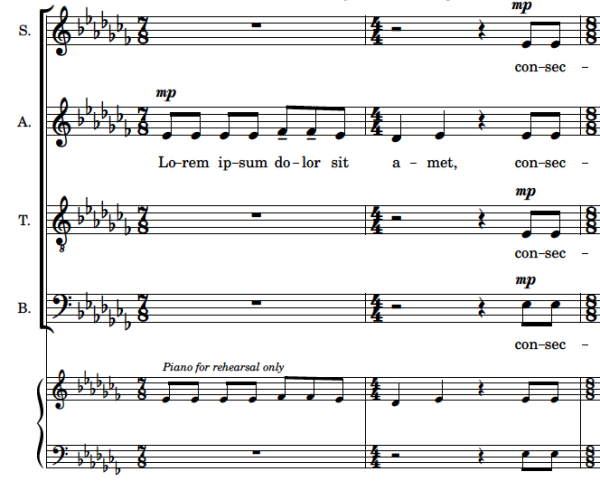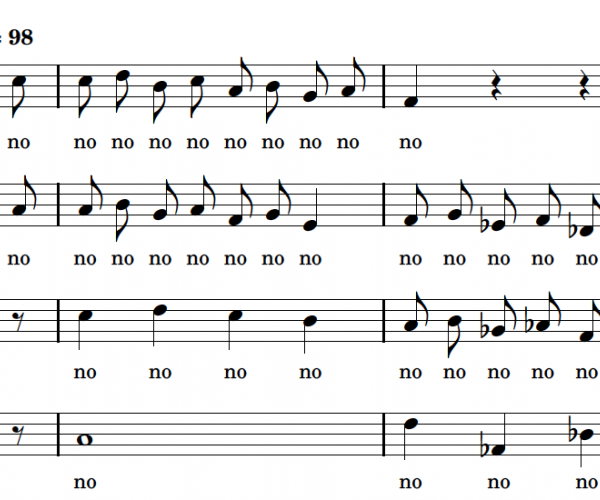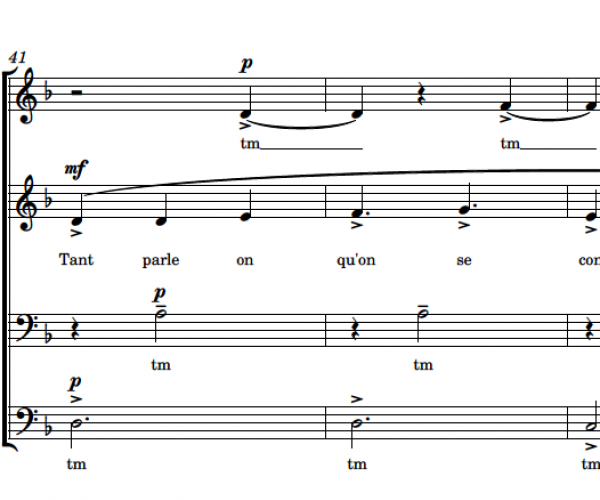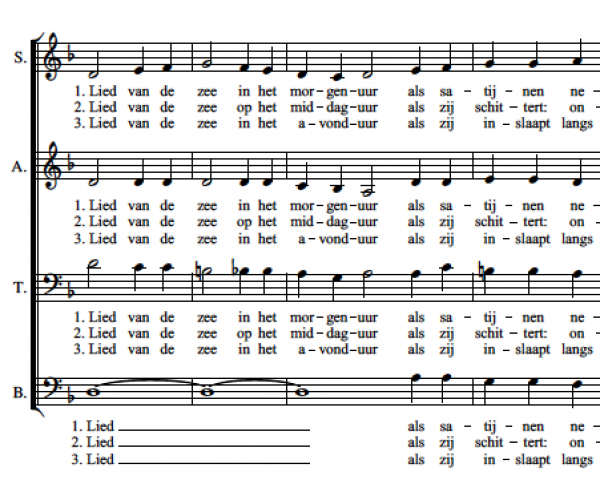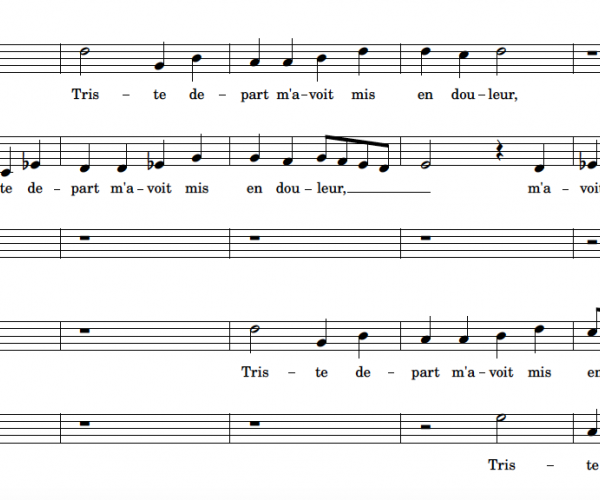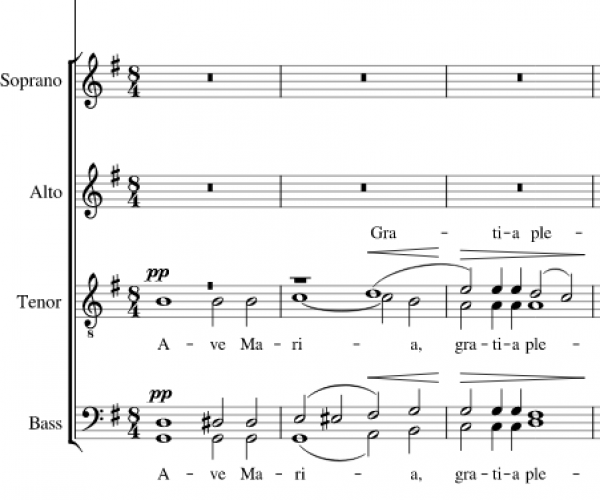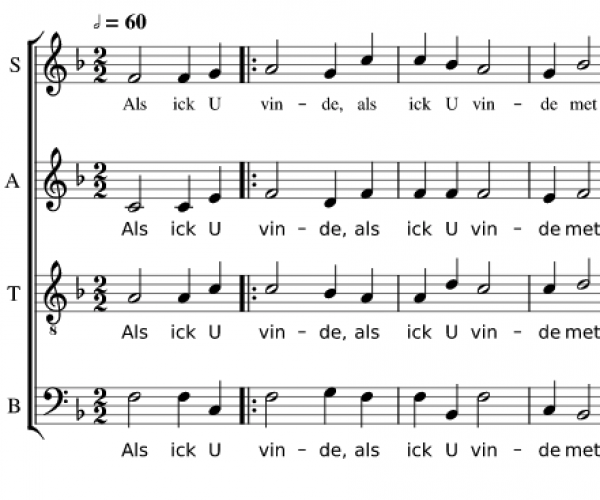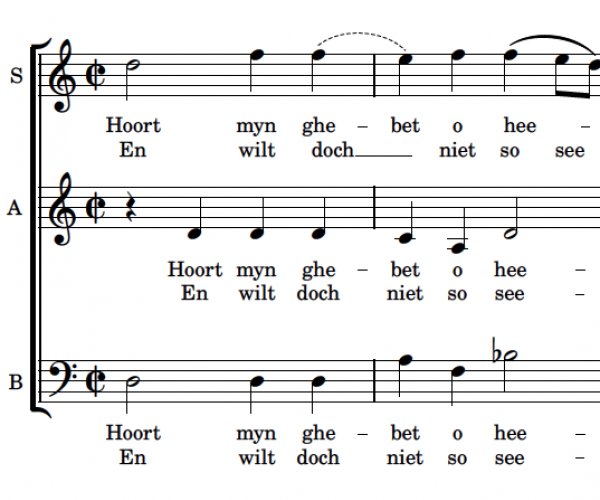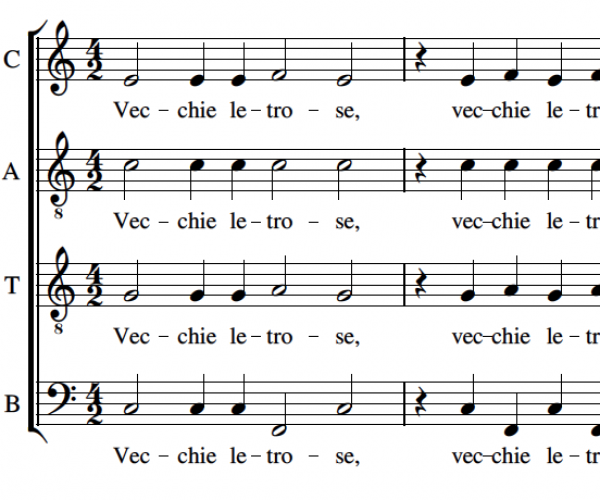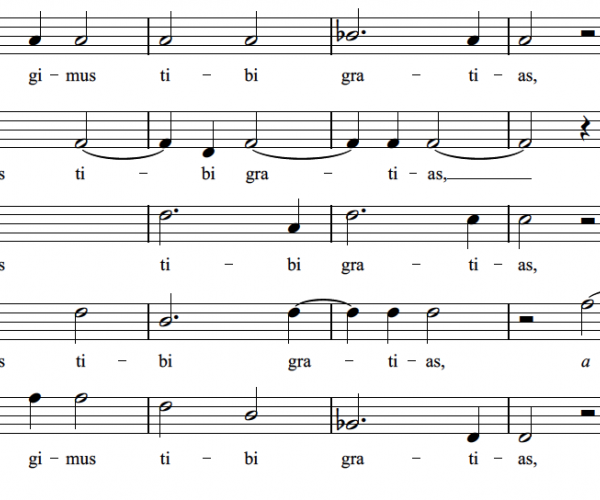Scores
- Adriaan Willaert (1)
- Carl Van Eyndhoven (1)
- Chris Dubois (1)
- Cypriano De Rore (1)
- Dirk De Nef (1)
- Frank Agsteribbe (1)
- Gilles Binchois (1)
- Hans Helsen (1)
- Hayne Van Ghizeghem (1)
- Heinrich Isaac (1)
- Hubert Waelrant (1)
- Jacob Obrecht (1)
- Jacobus Clemens non papa (1)
- Jan Van der Roost (2)
- Johannes Ockeghem (1)
- Josquin Desprez (1)
- Koen Vits (1)
- Kristiaan Van Ingelgem (1)
- Lara Denies (1)
- Lucien Posman (1)
- Ludo Claesen (1)
- Maarten Van Ingelgem (1)
- Nicolaas Gombert (1)
- Noah Thys (1)
- Noor Sommereyns (1)
- Norbert Rosseau (1)
- Orlandus Lassus (1)
- Paul Steegmans (1)
- Paul Schollaert (1)
- Peter Benoit (1)
- Raymond Schroyens (1)
- Roland Coryn (1)
- Sebastiaan van Steenberge (1)
- Stijn Dierckx (1)
- Vic Nees (2)
With Lorem ipsum, Stijn Dierckx won the second edition (2023) of the Vic Nees Composition Competition in the category music schools. The jury fell for the beautiful harmonies and the humor of the composer who, with Lorem ipsum, sets fake Latin - dummy text for graphic design to show the visual form of a document without any meaningful text - to music.
Nobody expected that Marina would become such a worldwide hit. Here you will find an a cappella version for SATB.
The Ballade des Proverbes is a summary of slogans, even proverbs, which together form a poem. De Nef deliberately opted for an instrumentation for baritone and bass in the male voices to make up for the unfortunately common shortage of tenors.
Paul Schollaert turned 80 in 2020. He wrote Lied aan de Zee from the Ensorcantata in July 1984 on the occasion of the annual music week in Ronse with the Ostend choirs Muzeschuit (children's choir), Camerata Ostendia (like-minded women's choir) and Ter Duinenkantorij (mixed choir of mainly parents of the children and young people from the two other groups).
This beautiful five-part chanson was first published in 1544.
Benoit wrote his opus 1 in the year that he obtained a first prize at the Royal Conservatory of Brussels. It became a double choir Ave Maria with divisi in the male voices.
This is perhaps Waelrant's best-known work. It is very popular with choirs in Flanders and the Netherlands.
A tasteful simple three-part setting of one of the 150 Souterliedekens.
Vecchie letrose is a villanscha. Willaert wrote fifteen of these kind of songs. Vecchie letrose is still very popular. Since it is very short, it is usually sung several times in succession, sometimes interspersed with instrumental versions. The text is spoken/sung by a lover who makes fun of the envious old women, under whose care the girl in love is placed.
A simple five-part motet as a vocal thanksgiving.
Pages
Register for our newsletter
We keep you informed 4 times a year about repertoire news, info about Flemish composers, new acquisitions in our library, webshop or freely downloadable scores on Koorklank

